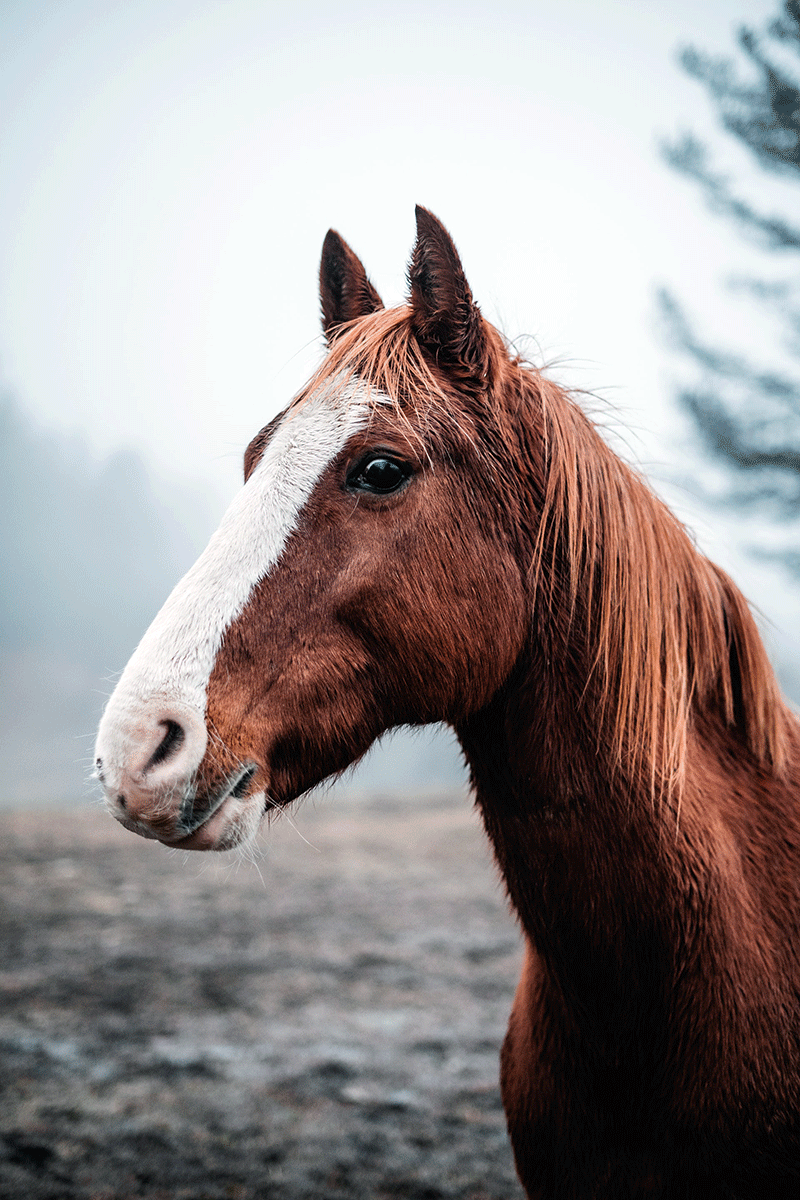Equines used in the production of eCG and ejiao are not protected.
One of the most commonly harvested products from equines is equine chorionic gonadotropin (eCG), otherwise known as pregnant mare's serum gonadotropin (PMSG). Used in animal breeding to induce follicular growth, ovulation and estrus, eCG is found in the blood of pregnant mares between days 40 and 130 of pregnancy. It is extracted in what have been termed blood farms in Argentina, Uruguay, Iceland and Germany.
More often than not these farms are unregulated, leaving animals vulnerable to abuse. Tierschutzbund Zürich and the Animal Welfare Foundation, together with Animals’ Angels in the US, carried out an investigation into blood farms in Argentina and revealed horrifying conditions. They found that workers routinely extract up to a quarter of an animal’s blood at one time, leading to weakness and anemia. Mares are kept constantly pregnant and aborted to hasten the next pregnancy, as well as being beaten by workers.
The eCG market is not just harmful to the equines from which it is harvested. The hormone is most often used by pig producers to enhance the opportunities for their farmed animals to come into heat, induce superovulation and produce an abundance of offspring. This is severely detrimental to the welfare of sows and their piglets.
The opinion on the use of eCG differs amongst veterinary surgeons and from country to country. Studies have been performed to replace the use of eCG by a synthetic alternative. No eCG would allow for more natural reproduction cycles of animals following their biological rhythm.
Another equines exploitation relates to the supply and production chains for ejiao, a traditional Chinese medicine made of gelatin derived from donkey skin. Due to high demand for the product, donkey skins are being imported into China from Africa, impacting the size of the African donkey population. Recently, Kenya banned donkey slaughter to prevent the decimation of the population in the country amid a spate of thefts. In Botswana, SPANA calculates that the donkey population has fallen by 38% over a two-year period.
In order to keep pace with demand, donkey theft and the price of purchased donkeys have both increased, which in turn severely impacts on the livelihoods of people whose lives rely on donkeys. It also directly impacts the delivery of the UN’s Sustainable Development Goals:
SDGs 1, 2 and 8: No Poverty, Zero Hunger and Decent Work
Since healthier working equids are more productive, families grow more food and better support themselves with sustainable economic activities, especially in rural communities.
SDGs 4 and 5: Educate children and empower women
Healthier, stronger working equids mean more children get to go to school and more women get the training they need to upskill. Women and children then explore future community opportunities instead of working themselves as draught animals.
SDGs 6, 12 and 15: Clean water and sanitation, Responsible Consumption and Production & Life on Land
Working equids mean better protection for biodiversity, lower levels of pollution and more sustainable use of precious resources like water and agricultural land
WHAT DOES THE PUBLIC THINK?
Member organisations such as Welfarm have used the South American TSB/AWF footage in campaigns asking pharmaceutical companies and laboratories to stop all imports of eCG from South America and market a synthetic alternative. In 2019, 1,548 supporters signed the Animal Welfare Foundation petition to the European Parliament asking for a ban on the import of Pregnant Mare’s Serum Gonadotropin (PMSG) from South America.
In order to tackle donkey welfare challenges worldwide, The Donkey Sanctuary published its Under the Skin reports and made it available in multiple languages. Nevertheless, in the United Kingdom at least, 88% of the population is unaware of the donkey trade for ejiao.
POLICY - CURRENT STATE OF PLAY
We would expect the European Commission to redefine the relevant animal welfare standards for eCG production now that new regulations on veterinary medicinal products have been published.
At present eCG is licensed in EU Member States, but veterinarians do not agree whether eCG is essential or not. The use of eCG products very much differs depending on the country and the species concerned.
The European Commission states it has no legal basis to act on this issue because it does not consider that mares kept for producing a medicinal product fall within the scope of the EU Directive that bans breeding procedures causing suffering to animals. Secondly, any trade restrictions imposed on such products based on animal welfare concerns would have to comply with WTO rules. Thirdly, in imposing a trade measure, the EU would have to target a specific tariff line. At the moment, the products enter in different forms into the EU, meaning the imports fall under different tariff lines, none of which exclusively addresses eCG.
Moreover, the World Organisation for Animal Health (OIE) standards that cover eCG production do not contain any relevant criteria for it, such as volume of blood extracted, frequency of blood extractions or methods of abortion.
Following recent legal developments, the European Commission needs to consider amending the Good Manufacturing Practice (GMP) to incorporate animal welfare as a criterion. However, the recently updated Regulation (EU) 2019/6 on veterinary medicinal products includes in its recitals the statement “the good manufacturing practices referred to in this Regulation should take into account the Union and international standards of animal welfare when active substances are prepared from animals”.
For ejiao, better enforcement of the existing ban is necessary to ensure that the global impact on donkey welfare and populations is reduced. It also remains to be seen to what extent online sale facilitates access to these products in Europe and if they comply with all the sanitary, health and safety rules.










